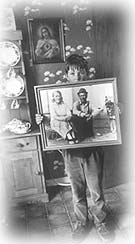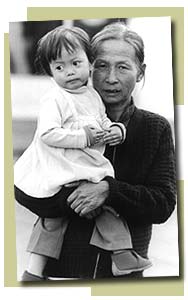|
- Defining Racism Practical Step to promote Anti-Racism |
![]()


What is Racism?
 We
all know that racism is an ugly form of bullying. Bullying not just on
the streets and in the school-yard but on the level of society as a whole.
But what if we are looking for a more detailed definition of "racism"?
We
all know that racism is an ugly form of bullying. Bullying not just on
the streets and in the school-yard but on the level of society as a whole.
But what if we are looking for a more detailed definition of "racism"?
Racism is a specific form of discrimination usually based on skin colour or membership of a minority ethnic group. It's a system of group dominance. This system is both structural and ideological. That is, it embodies political, economic, and socio-cultural structures of inequality. It involves processes and practices of exclusion, oppression and marginalisation, as well as stereotypes and symbols required by these structures and processes.
There is an element of denial about the reality of racism in Ireland. We can see ourselves as victims of racism but we have some difficulty seeing ourselves as oppressors. This denial can inform our inability to define racism.
We can try to define racism as embracing all oppressions whether experienced by women, by Black people, by people with a disability or whoever. But this does not allow for different groups having very different experiences of oppression requiring different responses. Neither does it allow for oppression across these groups - for example the possibility that relationship between women and people with a disability has the potential to be oppressive.
We can accurately acknowledge racism as an oppression based on skin colour or ethnic identity. But then we can define it as a two way process. Black people are racist to white people, white people to Black people, settled people to Travellers and Travellers to settled people. This conveniently omits to identify the central importance of the power differential between these groups in our society. Sure, all groups carry prejudices about each other. But only white people and settled people as a group wield power and control resources at a level where their prejudice makes a difference.
Of course we can see racism as something violent, overt, thuggish. Which it most certainly is. But it would be wrong to reduce it simply to this. And, if we did, how would we then explain the origins of such violent behaviour? Such a handy viewpoint allows people of goodwill to preach tolerance while washing their hands of the real roots of the problem and ignoring any possibility that they might be part of the problem.
When we look at racism, we need to see it as:
- an oppression experienced by Black and minority ethnic groups on the basis, predominantly, of their skin colour, and of their culture and identity
- an oppression that can be a feature of interpersonal relationships
- an oppression that can be a feature of institutional practices
Racism is at its most pernicious at the institutional level. It is at this level that it gets passed on from generation to generation, that it becomes part of our socialisation process. It is often hidden and unconscious.
Institutional racism has been defined as ordinary people going about their normal day to day business but producing outcomes that are disadvantageous to Black and ethnic minority groups.
The outcomes. That's where Institutional racism becomes visible. With Travellers, you can look at the poor accommodation, low health status and low educational attainment. It's easy to blame the victim. But shouldn't we look to see how institutional policy and practice create these outcomes? Shouldn't we acknowledge that nice people can be racist - that racism can be unconscious and without malicious intent?
In order to tackle racism we need to change the way we look at the problem and the way we act on it.
The challenge lies in promoting policy and practice that empowers the minority rather than just once again expressing the power of the majority.
| Calypso
Productions South Great George's St. Dublin 2, Ireland T (353 1) 6704539 F (353 1) 6704275 calypso@tinet.ie |
![]()
— Welcome
- About - Productions
- Theatre and Social Change -
— Racism - Refugees
and Asylum Seekers - Prisons -
![]()